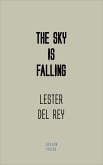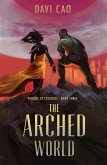In "The Other World," Frank Frankfort Moore deftly weaves a rich tapestry of fantasy and social commentary, exploring themes of illusion and reality with a satirical edge. Set against the backdrop of the fin-de-siv®cle period, the novel employs a blend of whimsical storytelling and incisive prose, drawing upon the literary conventions of both Victorian and Edwardian fantasy. Moore's intricate world-building invites readers into a realm where the extraordinary becomes commonplace, challenging conventional notions of morality and identity. The narrative style is both engaging and thought-provoking, encapsulating the complexities of the human experience amid the absurdities of existence. Frank Frankfort Moore, an influential author and playwright of the early 20th century, was known for his exploration of social dynamics and philosophical inquiries. His diverse background in journalism and theatrical writing provided him with a unique perspective on society's quirks, likely fueling the creative impulse behind "The Other World." Moore's keen observations of contemporary cultural shifts resonate throughout the text, reflecting his ability to synthesize personal experience with broader societal themes, making his work both authentic and deeply relevant. Readers seeking a provocative fusion of fantasy and critique will find "The Other World" an essential addition to their literary repertoire. Moore's distinctive voice and imaginative narrative offer not only entertainment but also incisive reflections on the human condition. This novel is a testament to the power of literature to transcend time, urging readers to survey their own realities through a captivating lens.
Dieser Download kann aus rechtlichen Gründen nur mit Rechnungsadresse in A, B, BG, CY, CZ, D, DK, EW, E, FIN, F, GR, H, IRL, I, LT, L, LR, M, NL, PL, P, R, S, SLO, SK ausgeliefert werden.









